Serendipity: Forging Connections and Conducting Research in the Republic of Georgia
The Global Research Institute’s Summer Fellows Program provides international experiential learning opportunities to W&M students. This post is one installment of a series highlighting the 2022 Fellows’ key discoveries and formative experiences.
By Katrine Westgaard ’23
I was fortunate enough to be selected as a GRI Summer Fellow, through which I conducted research for Professor Daniel Maliniak in the Republic of Georgia. If there is one word to sum up my time in Georgia, it would be serendipity. From the work I did, the connections I forged, and the amazing experiences I had in-country, everything seemed to come together perfectly. I had no idea what to expect when I first started my journey, but everything that I was able to experience exceeded my wildest dreams. I am forever grateful for the opportunity I had this summer, and I am excited to share how my time in Georgia changed me.
The other Summer Fellows and I conducted interviews to gain insight into how U.S.-Georgian military and diplomatic relations have developed over the past 20 years. Georgia is a very small post-Soviet state in the Caucasus that fought alongside the United States both in Iraq and Afghanistan. Professor Maliniak hoped to gain insight into what led the country and individual soldiers to participate in these efforts. That’s where I, and the other GRI Summer Fellows, came in. We were tasked with finding people to interview — people who were either involved in the military or political side of Georgia’s involvement in these missions. We also tried to find sources that could provide greater insight into how Georgia’s aspirations for NATO and EU accession influenced their cooperation.
It was a very big coincidence, but the first interview I set up and participated in was through a friend of a friend of my family. From that first initial interview, the connections kept coming. We used a snowball sampling methodology, and once we got the snowball rolling, it did not stop. From that initial connection, I was fortunate enough to be able to interview people at all levels in the Georgian political and military echelon. I was also able to participate in interviews with people from the U.S. side of things in Georgia, as well as speak with people in the Georgian think tank community to hear insights and understand the current political climate. Being part of these interviews was truly exhilarating. The stories I heard and the experiences people shared with me changed the way I view politics and affirmed the importance of human stories in research.
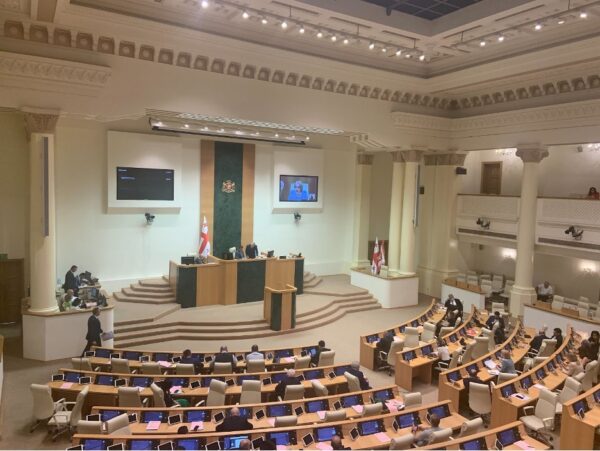
An image taken from inside the Georgian parliament.
Along the way, my fellow Summer Fellows and I were also able to forge lasting connections with other people in Georgia. While in the airport with Abby Stern, another GRI Summer Fellow, we struck up a conversation with a man traveling with his family. Through speaking with him, we learned that he had been living and working in Georgia for nearly 15 years with the European Union’s Monitoring Mission. He and his family invited us and Professor Maliniak to a traditional Georgian feast, known as a supra, at his home. The experience was truly an immersion into Georgian culture and Georgian cuisine. Through the dinner, we also met other people who provided incredible insight into various facets of our research. Georgian hospitality is infamous, and I experienced it continuously throughout my time in-country.
Mixed in with the interviews, we were also able to work on other exciting projects through the connection we made with a Georgian think tank called the Georgian Security Analysis Center or GSAC. In our short time working there, we became academic associates and assisted them with various grant proposals and brainstorming processes for future projects. Professor Maliniak encouraged us to pursue avenues for research that fascinated us and speak to people we found interesting while we were in-country. With this encouragement, I spoke to a representative from the Norwegian embassy (I am a Norwegian citizen myself) about their time in Georgia and what Norway’s relations with the country looked like. I also was fortunate enough to be put in touch with an old family friend who is currently serving as a Georgian parliamentarian. She set up one of the most unforgettable experiences whereby I was able to accompany a group of university students on a tour of the Georgian parliament. I was able to sit in and see Georgian parliamentarians fiercely debate issues pressing the country, and it was my first-time seeing democracy at work up close in that way. It is something that I don’t think I’ll ever forget or be able to experience in the same way anywhere else in the world.
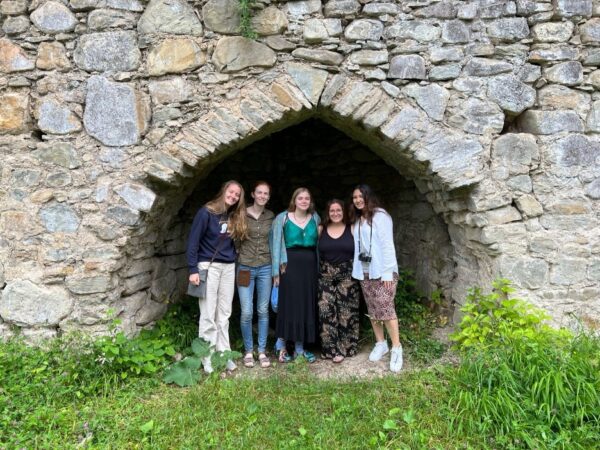
The GRI Summer Fellows Georgia Group! Pictured from left to right: Katrine Westgaard, Maia Earl, Daniella Marx, Abby Stern, and Aliia Woodworth.
Some of my favorite memories from my time in Georgia also came from the exploring that I did, both alone and with the other Fellows. While staying in Tbilisi, it is impossible to not stumble across hidden gems such as churches from the 6th century, makeshift art galleries, markets selling old trinkets, waterfalls, and stunning architecture. I spent many days walking through the city and exploring with the other Summer Fellows, but we also spontaneously decided to go on trips to other regions of the country. Abby and I decided on a whim to go on a tour to Kazbegi, a region in the northeast part of the country located in the Caucasus mountain range, where we saw beautiful churches and monuments along the way. All of the Fellows also traveled together to Kakheti, known as the wine region of Georgia, where we explored the sprawling countryside and ancient ruins. We truly tried to embrace everything Georgia had to offer, and I think we had a more enriching experience because of it.
The best part about being in Georgia was by far the people. The Georgian people were kind and welcoming, and I made many friends along the way. I like to joke that my network in Georgia now is bigger than my network in the United States. But I am also grateful for my fellow Summer Fellows: Abby Stern, Maia Earl, Aliia Woodworth, and Daniella Marx, who all helped make my experience so unforgettable. Together we experienced the highs and lows of being in a new country, but we also embraced the uncertainty by exploring as much as we could together. Working with them was an absolute pleasure, as they brought unique perspectives and contributions to the table — which made the research that much better. I am excited to be able to continue working with them now back in the United States and also have a group of people who can commiserate with me whenever I long for Georgian Khachapuri and Khinkali.
Everything about my time in Georgia felt wonderfully serendipitous. But I suspect that the reason it felt like that is because I, along with all the other Fellows, opened ourselves up to every new opportunity that presented itself and embraced being outside of our comfort zones. I will forever be grateful to Georgia, Professor Maliniak, the GRI Summer Fellows Program, my cohort, and everyone I met along the way for the experience of a lifetime.

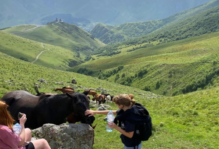
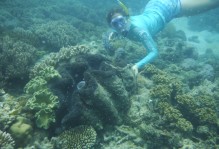
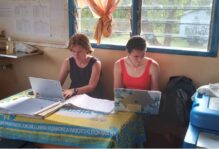
No comments.
Comments are currently closed. Comments are closed on all posts older than one year, and for those in our archive.